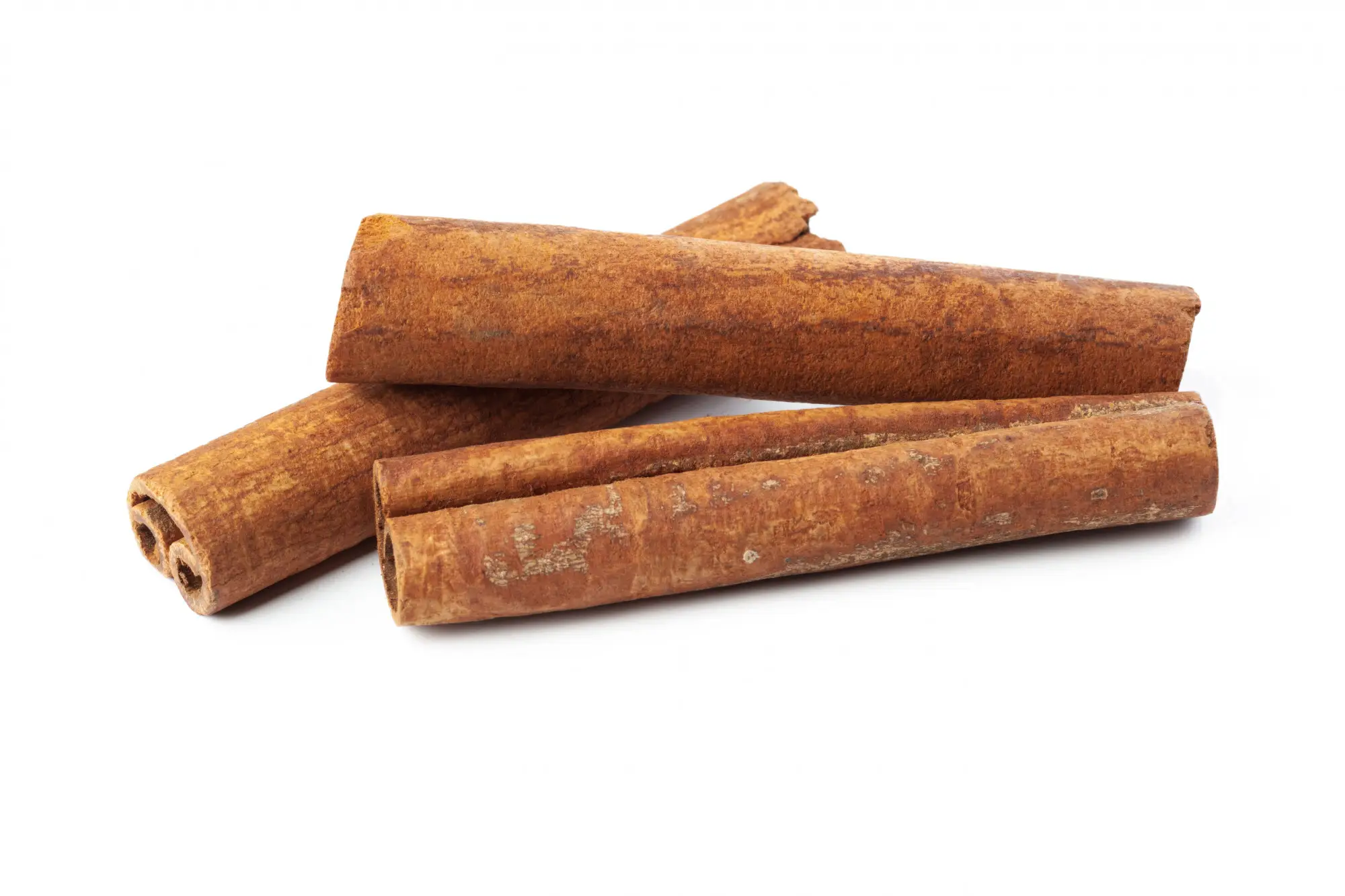Cinnamon essential oil
Cinnamomum zeylanicum
Cinnamon essential oil, derived from the bark and leaves of the Cinnamomum zeylanicum tree, offers a unique combination of warmth, spice, and powerful therapeutic properties. Known for its invigorating aroma and numerous health benefits, cinnamon oil has been a prized natural remedy for thousands of years. This article delves into the history of cinnamon, the benefits of its essential oil, and practical ways to use it in everyday life.
A Brief History of Cinnamon
The history of cinnamon dates back over 4,000 years to ancient Egypt, where it was highly valued for its medicinal, culinary, and religious uses. The Egyptians used it in embalming practices and as a perfuming agent. In ancient China and India, cinnamon was a staple in traditional medicine, revered for its warming and digestive properties. Cinnamon later became one of the most sought-after spices in Europe during the Middle Ages, often associated with wealth and luxury.

Scent description
Spicy, woody, sweetly spicy, warm
Usage
Inhaled | topically – strongly diluted | internally – strongly diluted
Effects, use cases
Disinfectant | Warming | Aphrodisiac | Antiviral | Antimicrobial | Antioxidant | Fungicide | Colds | High Cholesterol | Oral Hygiene | Bacteria | Fungus | Muscle Pain | Decreased Libido | Cellulite | Blood Sugar Control | Increase Blood Circulation | Stop Bleeding | Insect Bites
Warning, safety cautions
Essential oils are not intended to diagnose, treat, or prevent any disease, nor do they replace medications or therapies prescribed by a physician. They are not medicinal products and do not qualify as drugs. Based on experience, essential oils may have complementary therapeutic effects. If you are unsure about how an essential oil might affect you or your child, consult your general practitioner and/or a qualified aromatherapist. Before using any new essential oil (especially internally or directly on the skin), perform a patch test.
Use and health effects of cinnamon essential oil
Immune Support
Cinnamon essential oil is known for its powerful immune-boosting properties. It contains compounds such as cinnamaldehyde, which exhibit antimicrobial and antiviral effects. Diffusing cinnamon oil or using it topically (diluted) can help protect against common infections.
Digestive Aid
Traditionally, cinnamon has been used to support digestive health. Cinnamon essential oil can stimulate the digestive system, relieve indigestion, and reduce bloating. Adding a drop of cinnamon oil to warm water or herbal tea may help soothe digestive discomfort.
Anti-inflammatory and Pain Relief
Cinnamon essential oil contains anti-inflammatory compounds that help reduce muscle and joint pain. When diluted and applied topically, it can provide relief from inflammation and discomfort caused by arthritis or sore muscles.
Antimicrobial and Antifungal Properties
Studies have shown that cinnamon essential oil possesses strong antimicrobial and antifungal properties. It can inhibit the growth of harmful bacteria and fungi, making it a valuable ingredient in natural cleaning products and personal care items.
How to use cinnamon essential oil?
Cold
Take 1 drop in an empty capsule, massage into the soles of the feet dissolved in a carrier oil. Use in a diffuser to purify the air.
Muscle pain, fatigue
Massage into the painful, tense area dissolved in a carrier oil.
Bad breath, oral hygiene
Drop 1 drop into a glass of water and gargle-rinse with it.
Fungal infection
Drop 1 drop into an empty capsule and take or apply to the affected area with a carrier oil.
Libido, aphrodisiac
To increase libido, use it for massage dissolved in a carrier oil.
Cellulitis
Mixed in a carrier oil and massage into the area affected by cellulitis. It gives warmth.
Disclaimer: always check the manufacturer’s recommendation before using any essential oils internally or topically!
Warning, safety cautions
Essential oils are not intended to diagnose, treat, or prevent any disease, nor do they replace medications or therapies prescribed by a physician. They are not medicinal products and do not qualify as drugs. Based on experience, essential oils may have complementary therapeutic effects. If you are unsure about how an essential oil might affect you or your child, consult your general practitioner and/or a qualified aromatherapist. Before using any new essential oil (especially internally or directly on the skin), perform a patch test.
Cinnamon essential oil – spirituality and soul
In aromatherapy, cinnamon essential oil is known for its uplifting and energizing effects.
Enhance mood
The invigorating scent helps improve mental clarity and concentration.
Boost mood
Cinnamon oil’s warm and spicy aroma can help combat feelings of fatigue and depression.
Promote relaxation
Despite its stimulating properties, cinnamon oil can also create a calming environment when diffused, making it ideal for stress relief.
Recommended manufacturers of Cinnamon essential oil
dōTERRA
This essential oil is currently available from dōTERRA.
For further information, visit the dōTERRA website.
Young Living
Young Living is currently selling this essential oil.
For further information, visit the Young Living website.
Contact info
Author:
Roseware Kft. - Réka Rózsáné Illés
Affiliate programs
I am open to be the part of affiliate programs with essential oil manufacturers and sellers. Contact me!
Copyright info
Photos and texts on this website are subjects of copyright - the owner of the copyright is Roseware Kft. - Réka Rózsáné Illés. Do not use any of these without permission.
